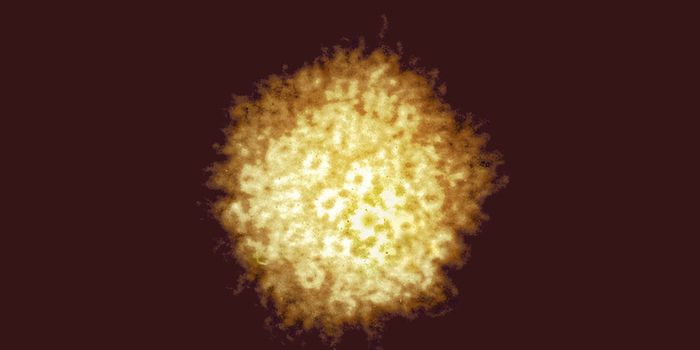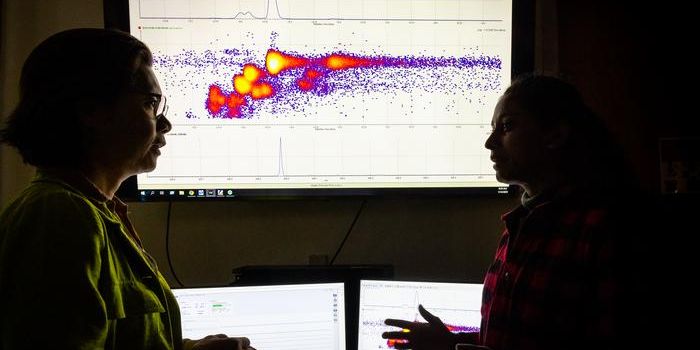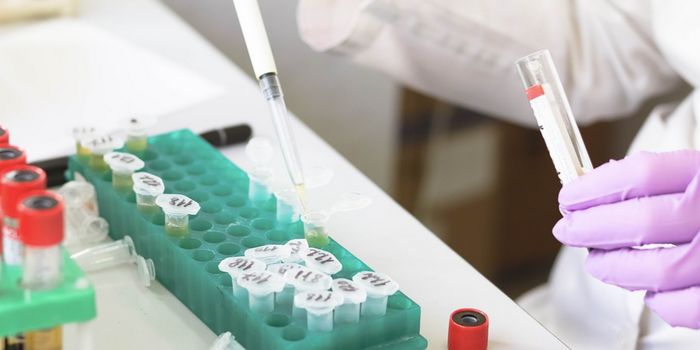The Labroots 2021 Cell Biology Virtual Event Poster Winner: 5-Azacytidine Treatment & Lung Cancer
Labroots' virtual events are a great place to share research and learn about others' work. These events feature participants from around the world who can display their research for free in a poster format. After this year's Cell Biology Virtual Event, an exceptional study was highlighted with an award. The work comes to us from a research group at MedFUTURE – The Research Center for Advanced Medicine at the University of Medicine and Pharmacy in Romania; Diana Gulei, Ph.D., and colleagues are investigating lung cancer cells and potential lung cancer treatments.
Lung cancer is a leading cause of cancer mortality around the world and is estimated to cause about twelve percent of all cases of cancer in both sexes. While patient screening and early detection can help people survive this disease, the long-term survival rate of lung cancer is only about 19 percent. Patients that are being treated also often develop resistance to those treatments over time.
It's thought that a combination of factors involving genetics, epigenetics, and environmental influences cause lung cancer. Together, these factors disrupt signaling pathways, interfere with a cell's natural tumor suppression functions, promote the expression of oncogenes, and use mutated genes to encourage cancer growth. Some treatments have taken aim at these mutations and the biochemical pathways that are associated with them, such as EGFR, ALK or MET, for example.
However, the poster noted that in about half of non-small cell lung cancer (NSCLC) cases, no targetable mutation can be found. In those patients where a relevant mutation can be revealed, treatment resistance typically becomes a problem.
As such, scientists have turned to epigenetics to look for new therapeutic approaches. In epigenetics, the sequence of a cell's genome does not change, but other factors, such as the addition of methyl groups to DNA, influence gene expression.
The researchers have theorized that cancer cells will only expend energy on processes, including methylation, that will benefit themselves. So, while patients may not have the same epigenetic patterns, it may be possible to treat lung cancer with demethylating drugs.
Methylation is thought to impact gene expression. There are regions in DNA known as CpG islands because they are rich in CpG dinucleotide repeats. CpG islands are often unmethylated.
In this work, when the scientists assessed methylation levels, they found that in lung cancer cells, there were over 4,100 CpGs that were overly methylated compared to normal cells, and about 1,200 CpGs that were hypo-methylated.
Corresponding author Gulei explained that "our research demonstrates that the development of lung cancer is strongly based on the methylation mechanism," and noted that this process could be a reversible one.
This excessive methylation led the researchers to a demethylating drug called 5-Azacytidine that is used in the hematology sector. An induced orthotopic model of lung cancer was exposed to 5-Azacytidine and the drug showed positive results.
The investigators found that 5-Azacytidine triggered cell death through apoptosis and necrosis. It also stopped new cell growth by inhibiting the cell cycle at the G1 phase. The researchers determined that the ability of lung cancer cells to proliferate into colonies was halted. In the xenografted model, lung cancer tumor size was reduced when mice were treated with 5-Azacytidine.
The study indicated that 5-Azacytidine could make lung cancer cells sensitive to therapeutics, and targetable for treatment, noted Gulei.
Find more information and sources on the winning poster in the On-Demand 2021 Cell Biology Virtual Event Poster Hall.
Click here to view a list of our upcoming Labroots Virtual Events and submit your poster for free!









